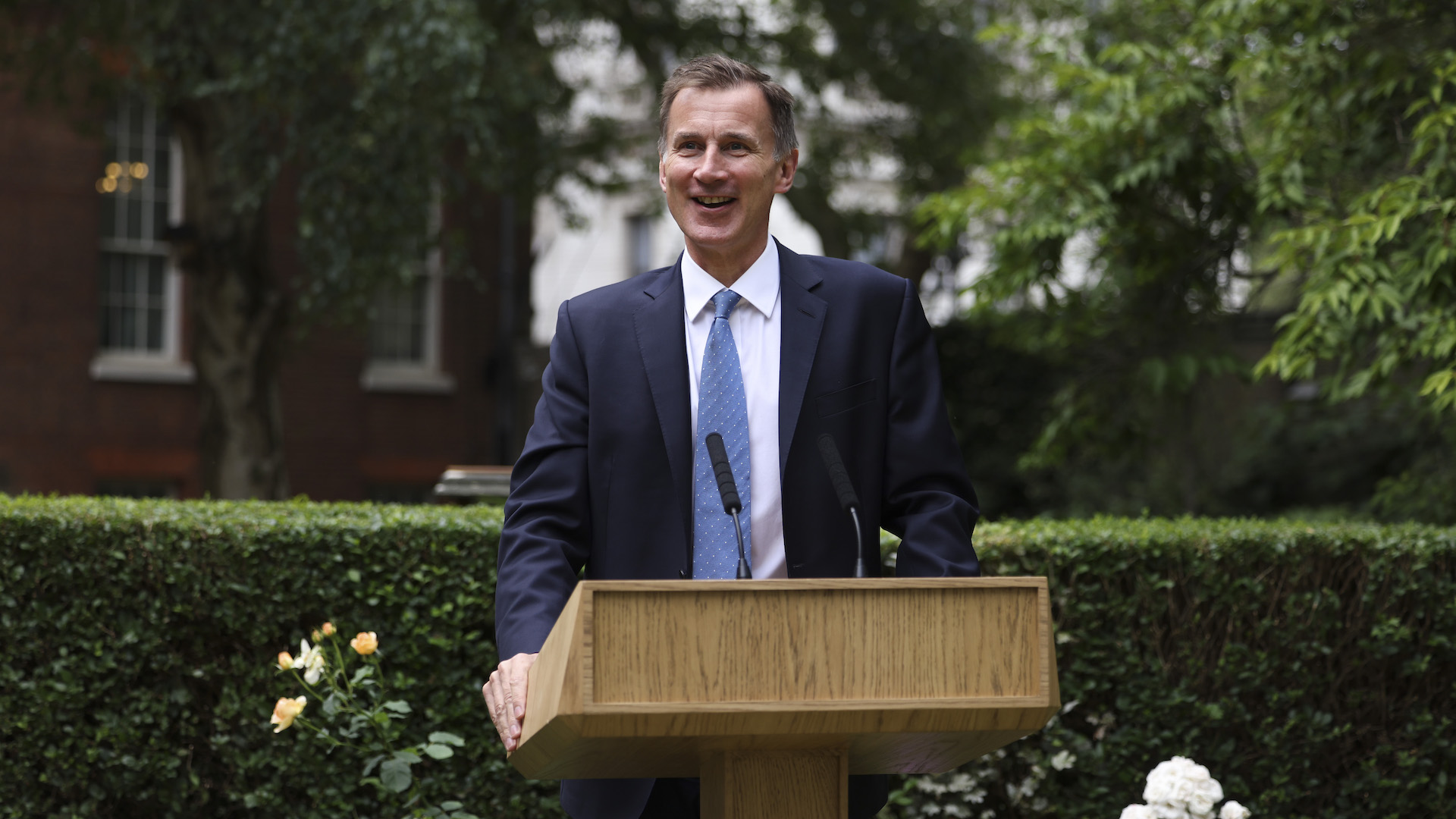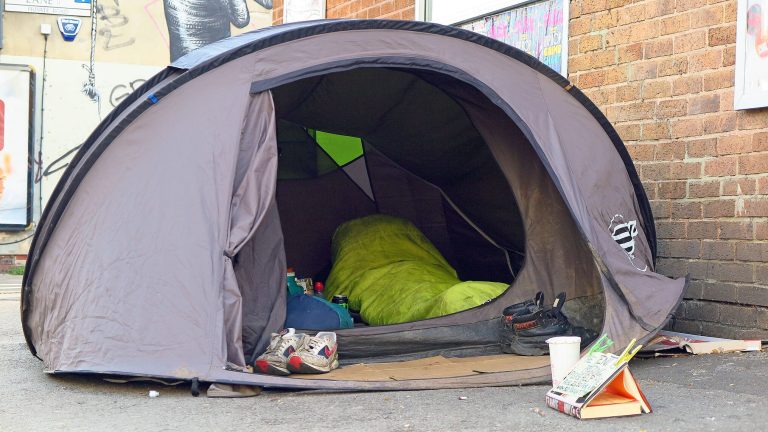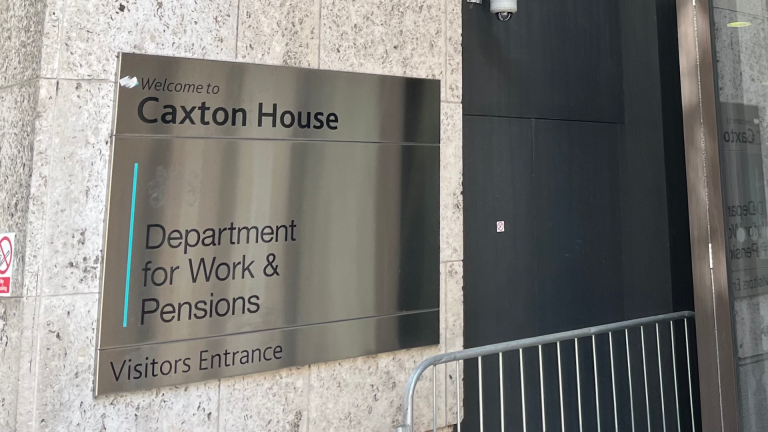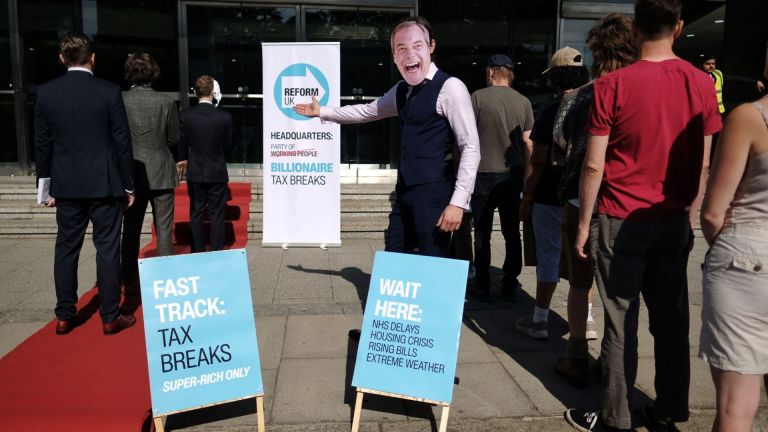The economy has grown slightly – but public spending is under pressure
The economy has grown slightly this year, out-performing expectations. In March, the Office for Budget Responsibility (OBR) predicted that the UK economy would shrink by 0.2%. Now, overall growth is expected to hit 0.6%.
Last week, it was announced that Britain had “turned a very big corner” in halving inflation this year to 4.6%. But it doesn’t mean that prices have stopped rising. They’re still going up, just at a slightly slower rate.
The chancellor is in “difficult terrain,” Resolution Foundation analysis warns. High inflation has boosted tax revenues by £15bn this year. But that doesn’t mean the government actually has more money to spend, according to James Smith, research director at the Resolution Foundation.
“As well as causing a huge cost of living crisis, Britain’s bout of high inflation is also flattering the public finances, with higher pay growth feeding through into higher tax revenues,” he warned. These revenues are around £15bn higher than expected so far this year.
“But while this will give the chancellor the appearance of extra wriggle room in his Autumn Statement, it is in fact a fiscal illusion founded on the idea that higher inflation will increase tax revenues without also pushing up spending on public services.”
Public service spending plans were set in cash terms before the recent inflation surge. This means that spending per person in unprotected departments (including the Home Office, Transport, Justice, and Levelling Up, Housing and Communities) is now set to fall in real terms by 16%, or £20bn a year, between 2022-23 and 2027-28. This will have a direct impact on how much they can allocate to public services.
Advertising helps fund Big Issue’s mission to end poverty
Will the national living wage increase?
Yes, the chancellor has announced that the national living wage will be increased from April 2024.
The National Living Wage is set to rise to £11.44 from April 2024, and it will also be extended to 21 and 22 year olds for the first time.
Will there be cuts to income tax?
Jeremy Hunt promised on Sunday to put Britain “on a path to a lower-tax economy”. “Everything is on the table,” the chancellor hinted, fuelling speculation he is considering cuts to income tax and national insurance.
The basic rate of income tax is currently 20p in the pound. Cutting it by 1p from April would cost about £6bn, according to HMRC estimates, while cutting it by 2p would cost about £13bn to £14bn a year. The latter would save the average household around £450 annually, reports suggest.
Taxation thresholds might also shift. The Times has reported that the higher-rate income tax threshold, when people begin paying the 40% rate, could be increased from its current level of £50,271.
Will there be inheritance tax cuts in the Autumn Statement?
Chancellor Hunt is under pressure from right-wing MPs to slash inheritance tax, but reports suggest that a reduction has been postponed until the Spring Statement.
Advertising helps fund Big Issue’s mission to end poverty
The charge is currently set at 40% on estates worth over £325,000, plus an additional £175,000 for estates passed down to relatives. Hardly anyone is rich enough to pay it – it applied to just 4% of deaths between 2020 and 2021.
Will council tax be increased in the Autumn Statement?
The government will reportedly allow funding-starved local authorities to hike council tax bills by up to 5% from April – a measure that would see the average family pay £120 more each year. The increase will allow most local authorities to charge more than £2,000 a year for Band D houses in 2024/25.
Such measures will “heap misery” on struggling households, according to Conor Holohan, of the TaxPayers’ Alliance.
Will benefits be increased in April?
The chancellor may only increase benefits by the October inflation rate 4.6% in April. They are usually increased by September’s inflation rate, which was 6.7%, but ministers are expected to prioritise saving money by going with the lower October figure.
It would save the government £3bn between 2024 and 2025, according to the Institute for Fiscal Studies (IFS), but it will come at a cost for the poorest in the country. Even if they went with the October figure, benefits were not expected to catch up to pre-pandemic levels until 2026.
This represents a “permanent cut” and comes after four years of benefits freezes and failures to increase benefits in line with inflation.
Advertising helps fund Big Issue’s mission to end poverty
Sam Ray-Chaudhuri, of the IFS, said: “Real benefit levels would not just take several years to regain their pre-pandemic values, due to the rather arcane lagged method for increasing them – they would never get back to where they were, without subsequent changes in policy.”
Are pensions going up in April?
The rules of the triple lock means that pensioners should be getting another boost to their state pension next year of around 8.5% along with wage growth – but the chancellor could well announce that pensions are only going to be increased by a smaller amount.
It is expected that Hunt will go for a rise of 7.8%, which the latest is the wage growth figure excluding bonuses. But this is still much higher than other benefits are expected to increase by in April, even if they are raised by the September rate of inflation.
What is happening with benefits sanctions?
The government has already announced that there will be more sanctions for benefits claimants who refuse to find work – and we’re expecting more details of this in the Autumn Statement.
The Back to Work Plan includes stricter sanctions for benefits claimants who refuse work – such as denying people free NHS prescriptions and legal aid. The government has also said it will take people’s benefits away if they are seen to not be engaging with the Jobcentre’s plans to get them into work.
But campaigners fear disabled and ill people will be forced into unsuitable work – leading to “more avoidable deaths” and “destitution” at a time when people are already struggling to survive. Read more here.
Advertising helps fund Big Issue’s mission to end poverty
Will the local housing allowance be unfrozen?
Some good news, at last. The chancellor could finally unfreeze local housing allowance and bring it back to a level covering 30% of local rents, according to reports from ITV.
It would be expensive, costing £1bn a year – but it would come as a huge relief for low-income renters who have seen their rents skyrocket while the housing benefit has not.
The Big Issue has been fighting for the government to end the freeze to local housing allowance in our End Housing Insecurity Now campaign.
What energy bill help will there be in the Autumn Statement?
Reductions in energy bill support mean many households will face higher energy bills despite falls in the cost of energy, the Resolution Foundation has warned. Some 11% of families face energy bills rising by more than £100 this winter, a figure that rises to 20% among the poorest households.
The chancellor reportedly plans to base assistance to offer households £1,000 for agreeing to have pylons installed in their area.
Matt Copeland, Head of Policy and Public Affairs at National Energy Action, described the support as “unconscionable”.
Advertising helps fund Big Issue’s mission to end poverty
“To give support based on geography, rather than need, would create a huge postcode lottery and leave millions of households cold at home this winter,” he said.
Will fuel duty be increased in the Autumn Statement?
Fuel duty – the levy the government charges on petrol – could be hiked in the Autumn Statement. The fee was reduced by five pence per litre in March 2022, a decision that left a £5bn annual dent in public finances. On Wednesday, it may be hiked by two pence, reaching 55p per litre.
What is happening with ISAs?
There are lots of rumours around ISAs in this Autumn Statement. There could be reforms to push more savers into investing their money, such as allowing people to open multiple ISAs of the same type without losing any money.
Hunt, according to The Telegraph, is also considering giving savers an extra £5,000 tax-free allowance if they invest in British companies.
Lifetime ISAs could be changed in this Autumn Statement to raise the property price cap, so that people who can’t find a house for under £450,000 can still take out their savings and buy a more expensive property.
Do you have a story to tell or opinions to share about this? We want to hear from you. Get in touch and tell us more.
Advertising helps fund Big Issue’s mission to end poverty










